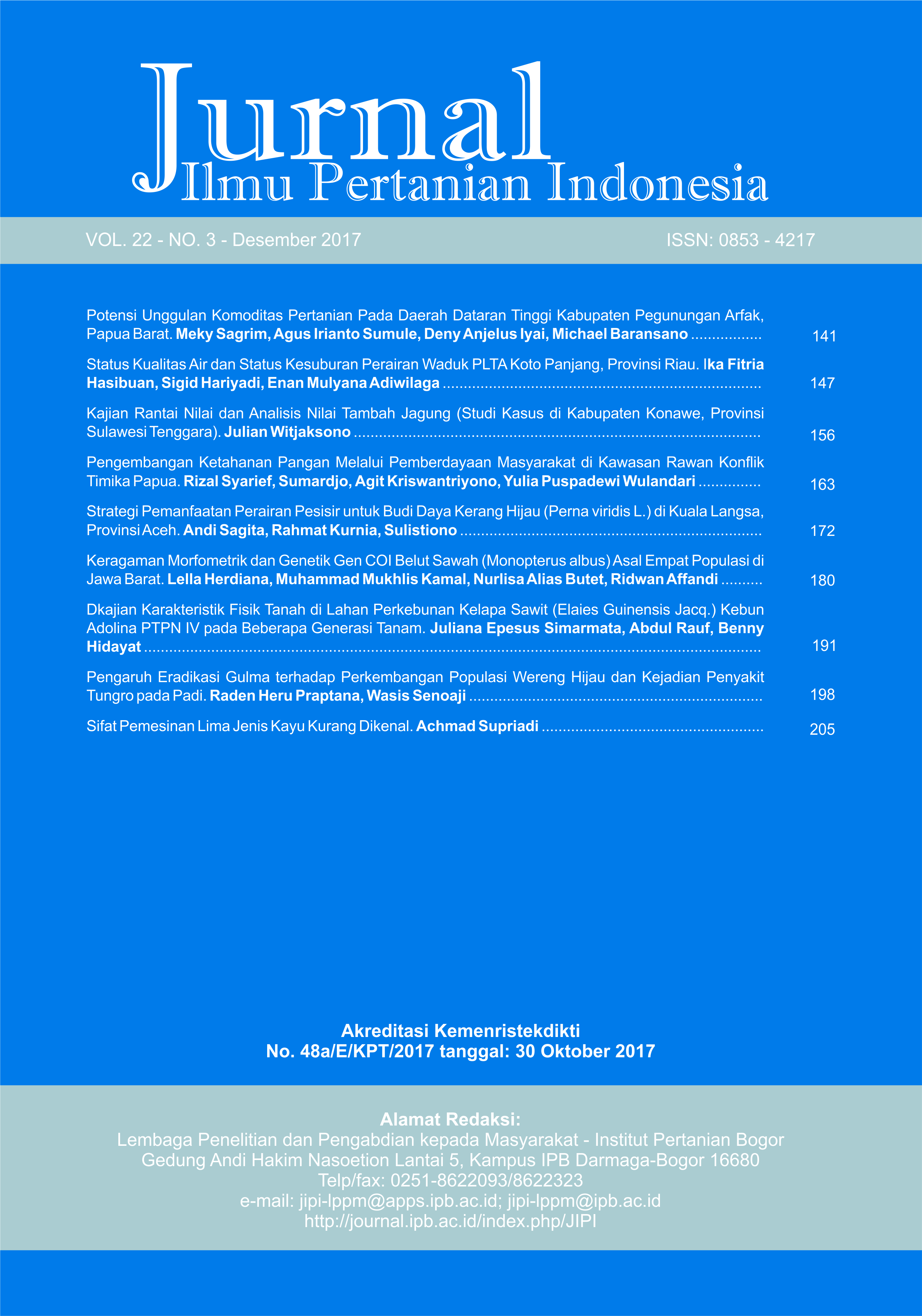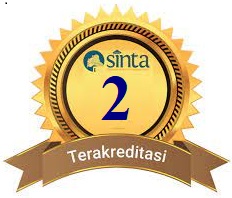Pengembangan Ketahanan Pangan Melalui Pemberdayaan Masyarakat di Kawasan Rawan Konflik Timika Papua
Abstract
Conflict handling in Papua so far is more often done with the repressive approach. The impact of conflict level is not decreasing, even international rejection is increasing. For that reason, a more humanistic approach is needed, including through empowerment. The purpose of this research is to study the community empowerment model in conflict-prone areas as an effort to realize the food security and the strategy of model replication in another area. The research method is done by action research, and SWOT analysis to formulate the strategy of model replication. The empowerment model conducted in several ways. First, gradually improve farming skills more productive-with the introduction of simple agricultural technology brings the change of community behavior from nomadic to the subsystem. Second, farming in order to provide for basic needs and also daily, weekly, monthly income as well as savings for families. Third, business development efforts by partnerships, with the government, companies, and religious institutions. The nodes of empowerment activities are conducted through the Agribusiness Training Center (ATC) that facilitates all empowerment activities. There are several things to consider in the replication model of empowerment: identification of program targets, needs assessment, institutional initiation, technology selection, assistance to the program, and partnerships with various stakeholders.
Downloads
References
[BPS] Badan Pusat Statistik. 2015. Perhitungan dan Analisis Kemiskinan Makro Indonesia 2014. Jakarta (ID): Badan Pusat Statistik.
Djaenudin M. 2011. Riset LIPI: Empat Akar Masalah Konflik Papua. [Internet]. (Diunduh 19 April 2014). Tersedia pada http://nasional.vivanews.com/news/ read/264390-riset-lipi-empat-akar-masalah-papua.
Dewan Ketahanan Pangan, Kementerian Pertanian dan World Food Program. 2015. Peta Ketahanan dan Kerentanan Pangan Indonesia 2015. Jakarta (ID): Dewan Ketahanan Pangan, Kementerian Pertanian dan World Food Program.
Erfit. 2011. Pemberdayaan Petani Dengan Kemitraan pada Agribisnis Hortikultura. Jurnal Penelitian Universitas Jambi Seri Humaniora. 13(1): 47-58.
Hanafie R. 2010. Pengantar Ekonomi Pertanian. Yogyakarta (ID): Andi Offset.
Mustofa. 2012. Analisis Ketahanan Pangan Rumah Tangga Miskin dan Modal Sosial di Provinsi Daerah Istimewa Yogyakarta. Jurnal Geomedia. 10(1): 29-48.
Rauf A, Rahmawaty, Dewi B, Said TJ. 2013. Sistem Pertanian terpadu di Lahan Pekarangan Mendukung Ketahanan Pangan Berkelanjutan dan Berwawasan Lingkungan. Jurnal Online Pertanian Tropik Pasca Sarjana FP USU. 1(1): 1-8.
Rusyantia A, Dwi H, Eka K. 2010. Kajian Ketahanan Pangan Rumah Tangga Pedesaan dalam Upaya Peningkatan Status Gizi Masyarakat di Kabupaten Lampung Selatan. Jurnal Penelitian Pertanian Terapan. 10(3): 171-184.
Sumardjo, Firmansyah A, Dharmawan L, Wulandari YP. 2014. Implementasi CSR Program Pengembangan Masyarakat: Inovasi Pemberdayaan Masyarakat PT. Pertamina EP. Subang Field. Bogor (ID): Pusat Kajian Resolusi Konflik Institut Pertanian Bogor.
Syarief R, Sumardjo, Fatchiya A. 2014. Kajian Model Ketahanan Pangan di Wilayah Perbatasan Antar Negara. Jurnal ilmu Pengetahuan Indonesia. 19(1): 9-13.
This journal is published under the terms of the Creative Commons Attribution-NonCommercial 4.0 International License. Authors who publish with this journal agree to the following terms: Authors retain copyright and grant the journal right of first publication with the work simultaneously licensed under a Creative Commons Attribution-NonCommercial 4.0 International License. Attribution — You must give appropriate credit, provide a link to the license, and indicate if changes were made. You may do so in any reasonable manner, but not in any way that suggests the licensor endorses you or your use. NonCommercial — You may not use the material for commercial purposes.























